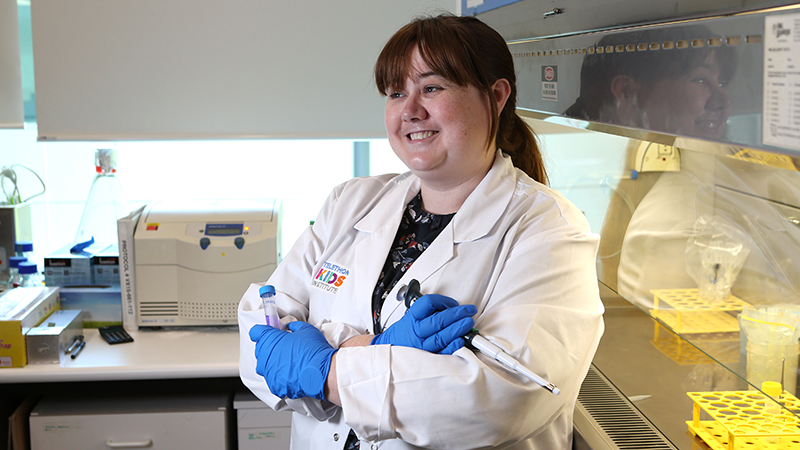
Research against childhood leukaemia is one step closer with new research by The Kids showing donor immune cells are highly effective at boosting the body’s response against the blood cancer.
The Kids researcher Dr Bree Foley said natural killer (NK) cells were a type of immune cell that had naturally evolved to eliminate cancer cells, in-particular leukaemia and lymphoma.
However, for children who have cancer, these cells can be depleted, and therefore Dr Foley wants to know whether donor NK cells could be a viable option to fight off leukaemia.
The research carried out in collaboration with The University of Western Australia and Curtin University compared the response of different donor NK cells against a panel of patient-derived leukaemic cells.
“We found that NK cells that were highly potent against one patient’s leukaemic cells were also highly effective against the majority of other leukaemic cells.”
“In contrast, there were groups of donors who had poor NK cell function against all leukaemic cells – this demonstrates that not all donors have NK cells that are capable of eliminating leukaemia.”
Dr Foley said the findings showed there were ‘superior donors’ that realistically could be used as an alternative treatment for children who typically would have to undergo toxic treatments, such as chemotherapy and radiation, that results in life-long adverse effects.
“It’s really important to me that we can find safer treatments for leukaemia to limit the use of toxic chemotherapies in these children. I want to make sure they have bright and happy futures ahead of them without worrying about treatment-related side-effects,” she said.
Dr Foley said the next step in this research was to understand why the ‘superior donor’ is better.
“Now we are focused on trying to understand what drives these highly potent NK cell responses in our ‘superior donors’,” Dr Foley said.
“If we can understand what underpins those anti-cancer responses, we can develop an even more improved ‘off-the-shelf’ therapy to treat leukaemia and other cancers.”
This project was made possible by funding from the Cancer Council WA, Cure Cancer Australia and Cancer Australia.
